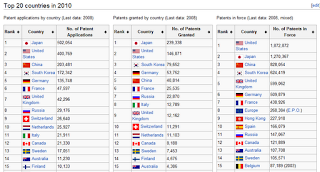- the rapid growth in the older population and the rapid shrinking of the younger generation.
- people will have to keep working until their mid-70s.
- those over 50s will work as temporaries, as part-timers, as consultants, on special assignments and so on.
- borderlessness, because knowledge travels even more effortlessly than money.
- upward mobility, available to everyone through easily acquired formal education.
- the potential for failure as well as success. Anyone can acquire the “means of production”, ie, the knowledge required for the job, but not everyone can win.
- industry and agriculture sector tend to shrink over time as the country transitioned from developing to developed status
- Since the second world war, manufacturing output in the developed world has probably tripled in volume, but inflation-adjusted manufacturing prices have fallen steadily, whereas the cost of prime knowledge products—health care and education—has tripled, again adjusted for inflation.
- Multinationals now tend to be organised globally along product or service lines. The multinationals of 2025 are likely to be held together and controlled by strategy.
If you are interest in the full article, please visit http://www.economist.com/node/770819 and http://www.economist.com/node/770861
There a couple of things are worrying me.
- As the developed countries shifting their economy structure from manufacturing and agriculture to services, this has benefited many of us. What ever that we are enjoying now may not last another 20 years.
- Our country is still relying very heavily on manufacturing and agriculture.
- We probably should have learned that as our government is trying to transform our economy to service based, manufacturing and agriculture sectors need to increase their productivity by three folds. If not, good luck to those in these sectors.
- Pushing towards service based economy without knowledge workers is probably making things worse. Take Philippines for example, the quality of life is terrible even though it has high percentage of services/GDP.
- A country can only enjoy high quality of life when their knowledge and productivity rise accordingly and not oversimplify thing. Killing manufacturing and agriculture sector and replace them with service sector is a stupid move.
- Don't get wrong that I'm anti-service sector or pro-industrial or pro-agriculture. Rather, I'm trying to make a few points. Productivity is not simply squeezing more with more working hours. Most people think productivity is moving up making products with higher value added. The key to unlock productivity is knowledge and innovation. If you look at chart below, you will notice countries with high patent activities are Japan, USA, China, South Korea, UK, Germany, etc.......
- We all may have heard that Samsung has taken over Nokia as # 1 hand phone maker in the world recently. http://www.forbes.com/sites/ewanspence/2012/04/28/three-areas-samsung-will-focus-on-to-avoid-smartphone-complacency/
- This came no surprise to me if we look at their efforts they put into R & D and number of professors that they produce. This is also a country that has high % of industry in their GDP composition. Industry made up 39.4% while services made up 57.6% of GDP.
- The next country that has tremendous potential is China by just looking at the number patent activities that they engaged. As China is transitioning into more service based economy, I think they can continue to do well because they have laid strong foundation in knowledge-based economy.
- If we look at Japan, they seem to have very strong innovation foundation but unfortunately I do not know why they have lost two decades and going into third lost decade. One of the theories that people put forward was dysfunctional politics. Dysfunctional politics have hindered them to take serious reform.
- I am getting more and more worried about our country because we have not invested much in R & D, automation(instead of relying on cheap foreign labor), declining education system(despite of many perks nowadays), getting a bit of Japanese dysfunctional politics virus, etc................
- The Economic Transformation Program actually is nothing more than a marketing program. They just repackage what is already there. I will comment more later on.
- All these have serious long term impact on our KLSE.



No comments:
Post a Comment